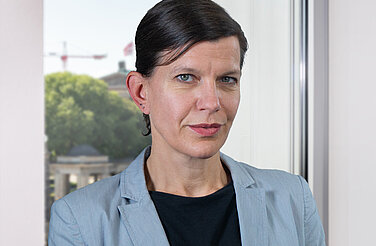The role of State aid in the EU’s green recovery
Event Recording
About this event
The European Green Deal is increasingly leading to a mainstreaming of climate action across policy domains and has become a driving logic of economic policy. Importantly, the EU institutions and many other stakeholders have committed to using the economic recovery packages responding to the COVID-19 crisis to shift to a greener and more resilient economy. However, this will also require a (re-)evaluation of State aid law, which so far has been perceived (and classified in the EU Treaties) as a matter of competition law or internal market policy, rather than environmental or climate law.
Government measures that push markets towards green growth often qualify as State aid. The EU treaties provide the European Commission with a powerful role in this regard by prohibiting State aid unless the Commission specifically approves it. Commission decisions on State aid thus play a pivotal role in effective climate and energy transition measures. In some areas (e.g., renewable energy investments, greening industrial production, energy infrastructure) they are as critical as formal EU legislation on climate and energy. To reduce uncertainty of governments and companies about future State aid decisions, the European Commission sets out basic principles of its intended decision-making practice in guidelines, which the Commission intends to update with regards to environmental protection and energy over the course of 2021.
However, an unprecedented relaxation of State aid rules via a Temporary Framework (on 19 March 2020, later amended on 3 April and 8 May) enabled the Member States to quickly and in some cases massively inject liquidity into their economies, without any particular conditionality to channel State aid and public spending to those enterprises that will contribute to the objectives of the Green Deal; or at least “do no harm” to them. Furthermore, on 27 May 2020, the Commission proposed a new 1.85 trillion Euro EU budget and recovery plan proposal with very limited climate safeguards and concrete prioritization of green investments. The EU response to the economic crisis triggered by the COVID-19 pandemic is thus forcing the need for a significant acceleration and recalibration of Commission’s revision of State aid practice. An acceleration, because it is critical to immediately ensure that the (temporary) State aid framework for recovery efforts aimed at fiscal stimulus will adequately enable a green recovery. A recalibration, because EU State aid rules should also be consistent with the EU’s long-term objective of climate neutrality.
On 30 June, Client Earth’s State aid lawyer Juliette Delarue and Agora Energiewende’s Head of European Energy Policy Matthias Buck together with the law firm Redeker presented key findings from an upcoming report exploring the role of State aid in enabling and ensuring a green recovery from the economic recission caused by the COVID-19 pandemic. In particular, it addressed legal and political questions about the Commission’s powers to put the overarching EU treaty objectives of environment and human health protection into full effect. The report can be downloaded here: www.documents.clientearth.org/library/download-info/a-state-aid-framework-for-a-green-recovery-mainstreaming-climate-protection-in-eu-state-aid-law/
The one-hour event was held in English and included a Q & A session.
PRESENTATION
The presentation can be found in the download section below.
RECORDING
We have recorded the event in order to allow anyone not able to follow it on 30 June to watch it afterwards. The recording can be found above.
Event details
The role of State aid in the EU’s green recovery
Agora Online Event
Upcoming events
If you want to receive news about upcoming events, please subscribe to our newsletter.



